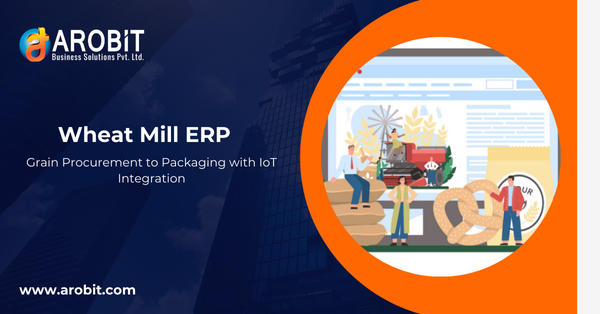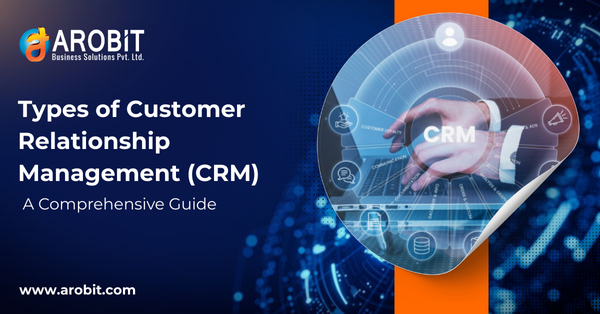ERP software has now become an inseparable bond for Indian organizations in today's dynamic business environment, looking to streamline operations, boost efficiency, and obtain competitive advantages. ERP systems integrate advanced technology with various business functions like finance, human resources, supply chain management, and customer relationship management into a single user-friendly platform, thereby providing real-time visibility and control of critical processes. According to newer estimations, ERP is expected to grow tremendously in India, crossing $1.1 billion by February 2025. Though ERP has numerous advantages attached to it, its implementation could surely be quite troublesome and expensive, and many businesses come across unexpected costs along the way. Finding the right ERP software company in India is of the utmost importance to avoid these problems.
The purpose of this blog is to unveil some of the discreet costs connected with ERP software implementation in India and give handy tips on bargaining with ERP companies in India. Knowing the caveats while figuring out smart and successful negotiating strategies provides businesses clarity in deciding, reduces financial setbacks, and maximizes the returns on their ERP investment. Be it searching for the best ERP software in India or a trustworthy ERP software development company in India, this guide will help.
The ERP Landscape in India
The ERP landscape in India is heterogeneous with a range of solutions for businesses of all sizes and industries. Multinational corporations, small and medium enterprises (SMEs), and businesses of all industries are finding their way to implementing ERP solutions to drive growth and streamline operations.
Key trends shaping the ERP market in India include:
Growing Adoption by SMEs: SMEs increasingly realize that ERP is valuable for achieving efficiency and better competitiveness.
Cloud-Based Solutions: Cloud ERP is coming into the spotlight owing to its scalability, flexibility, and lower startup costs.
Industry-Specific Solutions: The ERP software developers in India offer customized solutions for different industries, for example, manufacturing, retail, healthcare, and finance.
The right selection of the ERP vendor is crucial for a successful implementation. The factors to be explored in this respect are the experience level, expertise, industry knowledge, and customer support of the vendor. Several ERP consultants in India step in for the whole process.
Uncovering the Hidden Costs of ERP Implementation
While the first purchase price of ERP software may seem straightforward, businesses often wind up on the wrong side of a range of hidden costs that will have a great impact on the overall cost of ownership. These hidden costs may come from many sources—in this case, they are customization, integration, data migration, training, and maintenance of ERP. Read ahead to find some of the most common hidden costs found in the implementation of ERP:
- Customization: A major driver of ERP implementation costs is customization to meet peculiar business requirements. Further, pursuing extensive customization may lead to a demanding development time, high consultancy fees, and compatibility issues for future upgrades.
- Integration: To provide a seamless flow of data and the automatic running of an organization's processes, the integration of the ERP system with already existing software and databases needs to take place. However, integration is hugely complicated and costly, especially in situations when the legacy system is either old or incompatible.
- Data Migration : Moving data from a legacy system to a new ERP system is usually a painful and extremely time-consuming enterprise. Data must be cleansed, transformed, and validated to ensure accuracy and consistency.
- Training: Training will be of paramount importance for the user adoption and value of the contribution that the software comes with, including instructor fees, any material required for training, and possibly lost productivity during the actual sessions.
- Maintenance and Support: To ensure the smooth running of the ERP system and handle any technical difficulties that may arise, ongoing fees are necessary for maintenance and support. The fee typically includes software updates and modifications, bug removal, and technical support.
- Hardware Upgrades: Depending on the type of ERP deployment model (i.e., cloud or on-premise), these companies may find it necessary to invest in completely new hardware or upgrade their existing infrastructure, although clients would be off-balance due to the costs associated with this.
- Consultation Fees: Consultancy fees usually relate to planning, implementation, and the nature of customization on the ERP system—a common service offered by these vendors.
- Testing Costs: Provisioning the ERP system thoroughly to ensure its desired functionality is in line with business requirements is a key task that will become stakeholder engagement. Testing would cover test case development, test execution, and defect resolution.
- Vendor Implementation Team: Costs are also affected by the vendor's choice of an implementation team. The in-house employees of the vendor are much less expensive than third-party contractors.
Sensible tips for negotiations with ERP software vendors
Negotiation with ERP vendors is an important aspect of lowering costs while maximizing value. By taking a strategic approach to negotiations and following these sensible negotiating tips, organizations can better protect themselves from added expenses and hidden costs:
- Thorough Planning: Before you begin to discuss ERP software companies in India, spend some time planning for ERP implementation comprehensively. Articulate business needs, engender stakeholder awareness, set objectives, and most importantly, assign targets.
- Detailed Budgeting: Create a thorough budget for estimated spending yet to come into practice—the likes of software licenses, implementation service training support, and maintenance long after deployment. Everything should be justified, and the remaining finances will be your contingency fund.
- Precision in Scope Definition: Defining the scope in the implementation phase is required to keep you from creeping up the intended scope, coupled with real expenses. Write down all requirements and deliverables in a rigid scope document and make sure that a hidden agreement is reached at the back of the vendor.
- Work Out Pricing Model: Make yourself aware of the ERP vendors' pricing bands, namely—subscription-based pricing (SaaS) and perpetual licensing—and negotiate such terms as discounts for prolonged calibre contracts or similar ones for volume purchases.
- Fine Print Review: Review the contract very thoroughly with the vendor with the keenest scrutiny concerning all the relevant conditions and clauses that may affect payment terms, clauses concerning scope changes, and clauses regarding your termination rights.
- Don't Forget Open Source ERP: Open-source ERP systems can serve as an inexpensive alternative to proprietary solutions, but hidden costs should emerge. For example, implementation, customization, and support can frequently become costly. Examples of open-source ERPs that can be customized to meet company needs include ERPNext and Odoo.
- Implementation in Phases: ERP systems are often implemented in phases, with the most important being delivered first to help manage costs and disruption. Other functionalities are provided later.
- Take Referrals: Talk to companies that also selected the same ERP from the vendor. Ask them to give you their feedback on the vendor, implementation, and all unexpected expenses incurred.
- Contingency Planning: Set aside a contingency fund within your budget for unexpected expenses. As a rule of thumb, you may want to allow for a contingency between 10% and 15% of the project costs.
- Less Customization: Minimal customization is important because anything outside of standard ERP functionality potentially makes future upgrades far more difficult and costlier.
- Long-Term Software Updates: Expect further software updates and maintenance costs as you go along. Negotiate a support agreement that includes regular updates and bug fixes.
- Vendor Support Post-Implementation: Make sure the vendor will support the product you implemented. Negotiate a service level agreement (SLA) that will guarantee that you will receive timely responses and resolution of issues.
Examples of ERP Solutions in India
Different ERP software companies based in India provide an array of solutions, each different from the last with its features and benefits.
- Arobit: Offers custom ERP solutions to streamline business operations. Advanced technology and personalized features provide solutions to various industries for enabling efficient work allocation and optimal resource management.
- Sage X3: An end-to-end ERP solution with a strong level of capability, complete with scalability, ideal for global businesses.
- Oracle Cloud ERP: A comprehensive suite of cloud-based enterprise resource planning, featuring integrated AI and full-blown modules.
- SAP ERP: Industry-specific solutions and customizable designs address diverse business needs.
- NetSuite: A cloud-based solution with end-to-end modules that include financials, CRM, and e-commerce.
- Odoo ERP Software: An open-source ERP solution known for its user-friendliness and flexibility.
Case Studies/Examples
- Company A: A manufacturing company in India successfully negotiated a 15% discount on the initial purchase price of its ERP software by committing to a multi-year contract. With an implementation service, it achieved a fixed-price agreement, thereby avoiding any unexpected cost overruns.
- Company B: A retail chain avoids costly customization by carefully analyzing its business processes and adapting them to fit the standard functionality of its ERP system. The company also invested in comprehensive training for its employees, which resulted in high user adoption and reduced support costs.
FAQs
Q1: What are the hidden costs to consider when choosing an ERP software company in India?
A1: Hidden costs include customization, integration, data migration, training, maintenance, hardware upgrades, consultation fees, and testing capabilities, among others.
Q2: How can businesses negotiate better rates with ERP vendors?
A2: Grasp the structures of options they have; after budgeting, decide on the right approach for dealing with vendors and customer contracts, always knowing the short-end fun, and if available, read the fine print.
Q3: What key terms of the contract must be examined before the selection of an ERP provider?
A3: Important contracting terms to review include scope changes, payment terms, termination rights, service level agreements (SLAs), and ownership rights of intellectual property.
Conclusion
ERP software can transform Indian businesses; however, choosing an ERP is of the utmost importance, and its hidden costs should be weighed with acceptable norms of negotiation with ERP vendors. Empowered by tips suggested in this blog post, Indian companies can better inform their decisions about the software choices they make, reduce financial risks, and increase returns on the ERP investment. Indeed, to be successful in the long run, a proactive approach to ERP implementation along with smart negotiation strategies is required. You can look for options from different ERP software companies in India to suit your best interests.
Secure the Best ERP Deal Without Overspending
ERP implementation comes with hidden costs that many businesses overlook. If you’re still evaluating vendors, explore the Top 10 ERP Software Companies in India in 2025 to compare the best options. Also, make sure the software you choose meets your business needs by reviewing the Key Features to Consider in ERP Software Companies in India before making a final decision.








